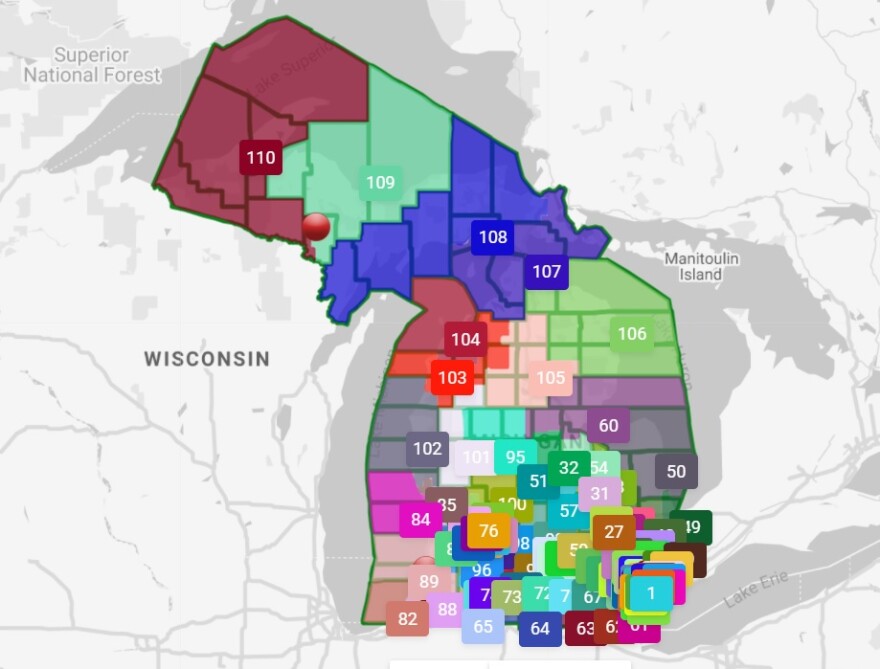Updated on October 27, 2021 at 5:50 p.m.
A death threat made against the Michigan Independent Citizens Redistricting Commission delayed Wednesday's meeting by a couple of hours.
The board was supposed to meet in the early afternoon at the Michigan State University student union.
The commission’s spokesperson says the threat came in over email.
This is the group's first meeting after a series of public hearings that wrapped up this week.
Original post, October 19, 2021 at 9:00 a.m.
The process of drawing Michigan’s new legislative maps is reaching a new phase this week.
The Michigan Independent Citizens Redistricting Commission (MICRC) is kicking off a round of public hearings Wednesday on proposed state House, Senate, and Congressional boundaries.
The maps are receiving criticism for a lack of districts that are majority-minority. It’s something stakeholders have said may violate the federal Voting Rights Act.
Commission chair Rebecca Szetela said the maps pass muster based on a voting rights attorney’s advice, and research from a hired consultant.
“She looked at the voting history in the State of Michigan, particularly in metro-Detroit area and other areas where there are significant minority populations and was able to determine a percentage where minority individuals are able to elect their candidates of choice,” Szetela said.
Commission leadership said they had confidence in the advice they have been receiving, despite concerns from all sides of the political spectrum.
The five MICRC public hearings run between this Wednesday and next Tuesday—with stops in Detroit, Lansing, Grand Rapids, Gaylord, and Flint.
Vice Chair M.C. Rothhorn said it’s still possible the commission could make wholesale changes to the draft maps after public comment.
“It’s a legal process with public input. So, I mean, we’re not afraid to do it. We’re just trying to recognize that we’re trying to do this in a time frame that doesn’t shortchange the public process,” Rothhorn said.
This is the commission’s first time drawing boundaries for state House, Senate, and Congressional Districts.
It was created following a 2018 voter-approved amendment to the state Constitution.
Previously, the Legislature handled the redistricting process behind closed doors rather than the public approach required of the MICRC. One side effect of every day citizens drawing the new maps is the increased potential for incumbent lawmakers to be drawn into the same district.
Commission director of communications Edward Woods III said there’s been no communication with either incumbents or possible candidates.
“This is clearly the Michigan Independent Citizens Redistricting Commission. We have seven ranked criteria. That is not happening anywhere across the state. No consultation with any lawmaker. Whatsoever. At all,” Woods said.
In all, the commission has submitted 10 collaborative maps for public comment.
Two of three state Senate maps give Democrats a projected electoral edge while the third would hypothetically create an even 19-19 split with Republicans.
One state House map gives Republicans an advantage, another gives Democrats a potential majority, while the third would split the state House of Representatives.
Each proposed Congressional map creates a projected 7-to-6 split between the parties, with Democrats gaining the upper hand after reapportionment cost the state a seat.





